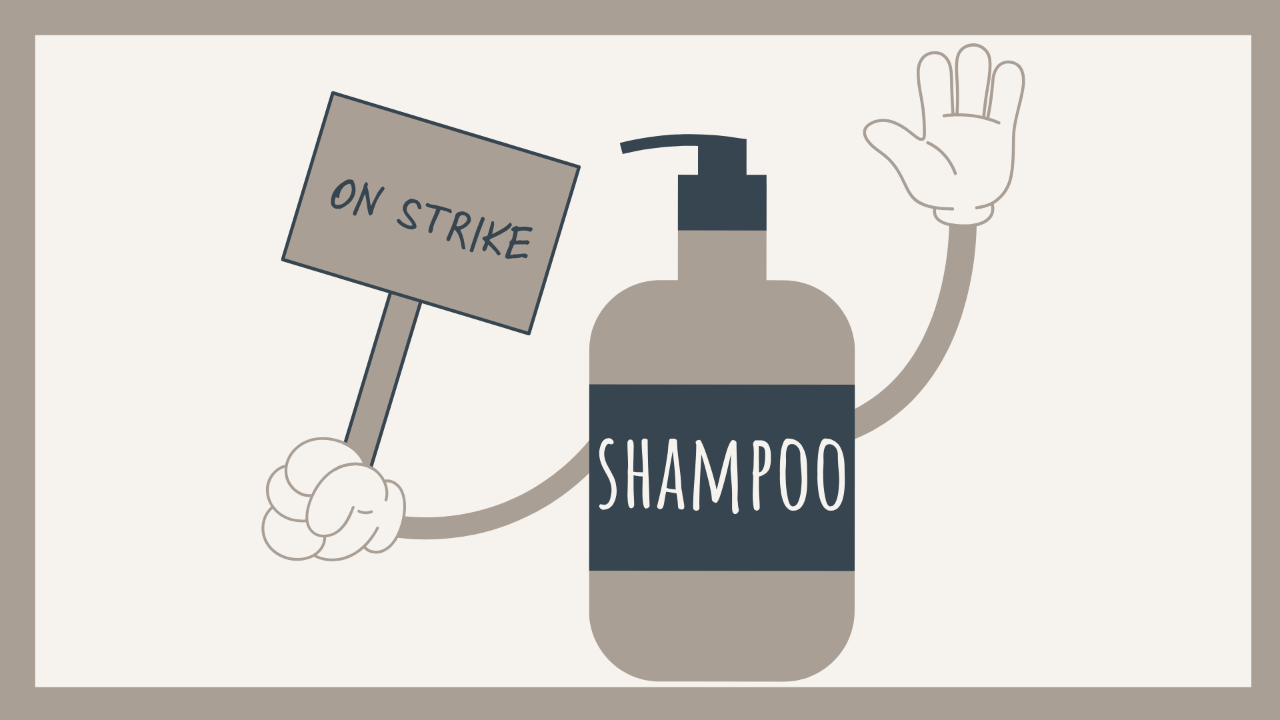
the struggle that is: hygiene
Hygiene might seem like a simple, everyday task to some, but for many of us, it’s a constant challenge that requires more energy, thought, and emotional regulation than we can sometimes muster. If you’ve ever found yourself putting off brushing your teeth, skipping a shower, or feeling overwhelmed by the idea of a simple skincare routine, you’re not alone.
The reasons behind our specific struggles are varied, and it’s important to understand that they often stem from deeper, neurodivergent experiences. For many of us, the challenge isn’t just about remembering to take care of ourselves—it’s about navigating sensory overwhelm, executive functioning difficulties and emotional distress. Each of these factors can make something as simple as changing your undies feel like an insurmountable task.
Let’s break down these common struggles to understand where our specific barriers lie.
When considering sensory overwhelm, the five external senses can trigger various stressors. Here are some common complaints associated with each sense:
Visual
Bathrooms often have fluorescent lights so you can see all the nooks and crannies of our beautiful bodies - this is great to get the stray hair, not so great for our nervous systems. We also tend to store a variety of items, from toiletries and cleaning products to towels, medications, and personal care tools, often resulting in visual clutter.
Smell
Personal care products are frequently filled with strong scents from soaps, shampoos and deodorants. We (or our neighbors) might even douse ourselves in a particularly potent perfume. And don’t even get us started on the jarring smell of cleaning supplies or nail polish.
Taste
Oral hygiene requires some strong measures to get rid of that gnarly bacteria and stanky breath. For that reason, the taste of toothpaste or the gritty texture can make the experience harder to tolerate.
Touch
The sensations associated with personal care are endless. The feeling of water pouring over you, the shift from cold to hot and back to cold, rough towels, wet or lotioned skin touching clothes. Putting on a tight bra when wet? WOOF.
Hearing
Bathrooms have lots of low tones, such as running water, flushing toilets, electric toothbrushes, and the hum of a fan. Naturally, our bodies are more unconsciously 'on-guard' when these sounds are present, draining out our precious energy reserves.
Take a shower," they say. Sure, easy enough—like, just turn on the water, hop in, and you're done. Except, it's more like: get the temperature just right, step in without slipping, wet your body, shampoo your hair, rinse and repeat (literally), condition, wash your face, scrub every inch of yourself, maybe shave something, rinse again, turn off the water, step out, dry off, moisturize, and— the list goes on!
Time management
Taking into account the list above, it can be hard to manage your time when one “to-do”, like showering, is actually 17 tasks packed into one cute word. When you have somewhere to be, estimating how much time a task will take can feel impossible, leading to rushing or delaying. These feelings only increase procrastination or avoidance.
Initiation
Add up the overwhelm of planning, organization, and time management, and you get a complete lack of initiation. It can start to feel like a mountain to climb, it’s easy to just freeze. We can build these experiences up so much, dreading everything that’s involved, that we even forget the parts we actually enjoy.
The Western world’s emphasis on efficiency tends to favor the neurotypical, top-down processor. As neurodivergent people we are often sifting through a constant flood of information and dealing with a society not always inclined to accommodate our differing needs. This combo can lead us into a burnout or getting trapped in a stress cycle. In a state of emotional distress, hygiene can feel less like a simple task and more like building the freakin' Taj Mahal.
Society has created a standard for hygiene that often doesn’t account for personal or neurological differences. The pressure to meet these standards can lead to self-criticism, as we feel like we’re failing if we can’t keep up. Until the 20th century, daily bathing wasn’t a widespread expectation, let alone getting your hair done, nails did, Botox, daily gua sha-ing, or the many other modern beauty practices. These societal pressures can make it even harder for us to feel we are "doing enough" when it comes to self-care and hygiene.
These are all real challenges that many of us face. The more of these stressors we experience, the more hygiene feels like an overwhelming mountain to climb. So, how can we begin to lighten the load?
Look at yourself with soft eyes - this IS hard.
It's okay to acknowledge that hygiene can feel overwhelming. Be kind to yourself—there’s no shame in needing extra support or strategies. The fact that you recognize this and are trying to look for ways to better manage it is already a win.
Create motivation by determining a “WHY” behind your hygiene.
Sometimes, the “why” is easy—like “because I feel fresh or clean.” But other times, that simple motivation is long gone, and finding a deeper purpose can help reignite the drive. Whether it’s self-care, confidence, or health reasons, identifying a “why” to the importance of hygiene can create a stronger, more meaningful motivation.
When the internal motivation just isn’t there, it can be helpful to lean on a shiny external reward to get the basics done. Like, “Okay, once I get ready for bed, I get to play Candy Crush until lights out,” or, “If I shower, I get to take down my favorite comfort meal of dino nuggies (iykyk) and mashed potatoes.” Ideally, we want to tap into our intrinsic motivators—built from a solid why and routine—but, sometimes, you gotta do what you gotta do to get things done!
Understand your stressors so you can accommodate your needs
If we can understand which specific areas are creating the most weight, we can begin the process of lightening the load. The amount of resources and strategies out there is endless, but first, we need to pinpoint what’s draining our energy.
Once we identify those stressors—whether it’s sensory overwhelm, executive functioning difficulties, or emotional distress—we can begin to tailor our approach and accommodate those needs. By addressing the root causes, we can make these tasks feel more manageable and less taxing on our energy reserves.
Start small, move slow.
Let’s be realistic with ourselves: we aren’t going to wake up tomorrow suddenly loving personal hygiene. This is a journey, and it's okay to take it one step at a time.
The goal: identify one area that’s holding you back, pick an accommodation to try, and focus just on that.
Once it becomes routine and no longer requires extra thought or effort, you can add another strategy to keep moving forward. Each step is a victory, and before you know it, you’ll have built a series of small, manageable habits.
It really CAN get easier.
shine bright, be you
♥︎
wanna stay connected?
we'll send resources, motivation, and guided activities right to your inbox!
*unsubscribe at any time*

